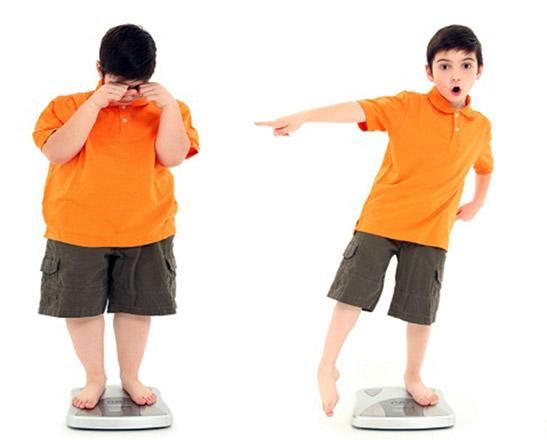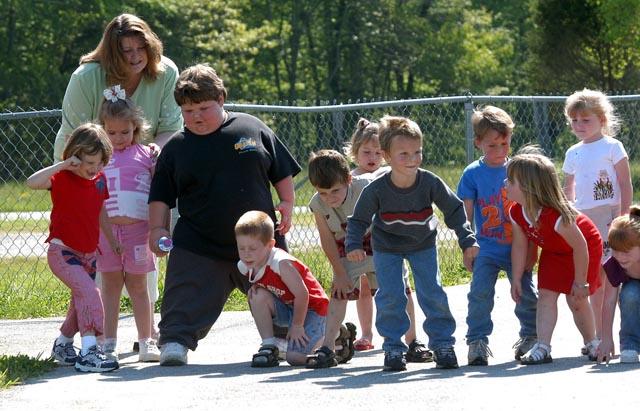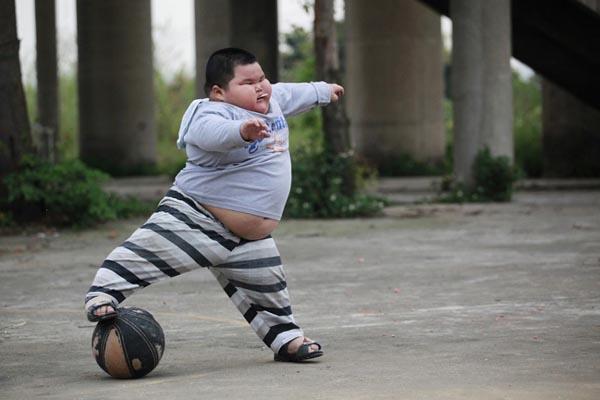You are here
Young kids may have mature biases against overweight people
By Reuters - Jun 24,2017 - Last updated at Jun 24,2017

Photo courtesy of majormindset.com
Kids may develop an implicit bias against overweight and obese people early in childhood that leads them to make quick judgements based only on size, a small experiment suggests.
The study tested snap judgements made by youngsters ages 9 to 11 right after they’d seen pictures of children with varied body shapes.
Participants were briefly shown pictures of older children who were similar to each other in age, race and sex but of different weights. Right after that, they briefly viewed images of meaningless fractals and were asked to rate these abstract geometric patterns as “good” or “bad”.
After seeing pictures of healthy weight children, the participants gave 64 per cent of the fractals a “good” rating, compared with just 59 per cent of the fractals they saw after looking at overweight children.
If the participants had no implicit weight bias, researchers would expect them to rate half of the fractals “good” and the other half “bad,” the study authors say. A difference in the proportion of “good” ratings after pictures of healthy weight versus overweight children, however, indicates implicit bias.
“What’s surprising here is that the bias is similar to that seen for race, and shows us that even kids already have strong preferences based on weight,” said lead study author Asheley Cockrell Skinner of Duke University in Durham, North Carolina.
The children had to make their judgements in a hurry. They only saw pictures of other children for 350 milliseconds, followed by an image of a fractal for 200 milliseconds.
Each participant viewed eight pairs of images. Pictures showed children engaged in a variety of activities like reading, running, standing and studying. In the pictures, children wore similar outfits and had similar facial expressions.
The difference in percentages of “good” fractal ratings — that is, the degree of young participants’ implicit bias — depended on how much the participants themselves weighed.
Overall, the implicit bias rate was 5.4 per cent, researchers report in Paediatrics. But among healthy-weight participants, the implicit bias rate was 7.9 per cent, compared with 1.4 per cent for overweight participants.
“It’s possible children with obesity have greater exposure to other people, such as family members, who have obesity; [they] may be more accepting of obesity; or healthy children may not see children with obesity as `like them,’ which affects their preferences,” Skinner said by e-mail.
Beyond its small size, other limitations of the study include its group of mostly white, affluent participants recruited from a single location, the authors note. This might mean the results would be different in a more diverse group of children.
Still, the findings add to a growing body of evidence suggesting that weight bias starts early, said Rebecca Pearl, a researcher at the Perelman School of Medicine at the University of Pennsylvania who wasn’t involved in the study.
“Prior research has shown that children as young as preschool age show preferences for thin versus overweight peers,” Pearl, who wasn’t involved in the study, said by e-mail.
Parents can influence this, however, said Dr Anne McTiernan, of the Fred Hutchinson Cancer Research Centre.
“Parents should teach their children to be accepting of people of all sizes,” McTiernan, who was not involved in the study, said by email. “They can also screen for images their children see on TV and on the Internet.”
They should also lead by example, said Justin Ryder, a paediatrics researcher at the University of Minnesota Medical School who wasn’t involved in the study.
“Using terms like fat, unhealthy, lazy, bad, ugly, etc. in reference to a person struggling with being overweight or obese is likely to build a negative attitude toward that people of that body shape over time,” Ryder said by e-mail. “Parents likely do not realize their own implicit bias towards persons who are overweight or obese, making this a challenge.”
Related Articles
Half of parents with an overweight or obese child think their kids are slimmer than they actually are, according to a new review of past studies.
Obese girls are more likely to develop depression during childhood and adolescence than their peers who weigh less, a research review sugges
Researchers have identified a new culprit in the epidemic of childhood obesity: parents who can’t even tell that their pudgy kids are overweight.


















